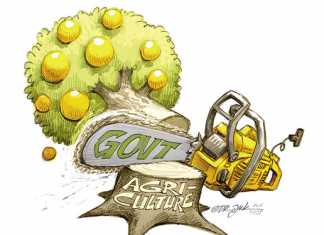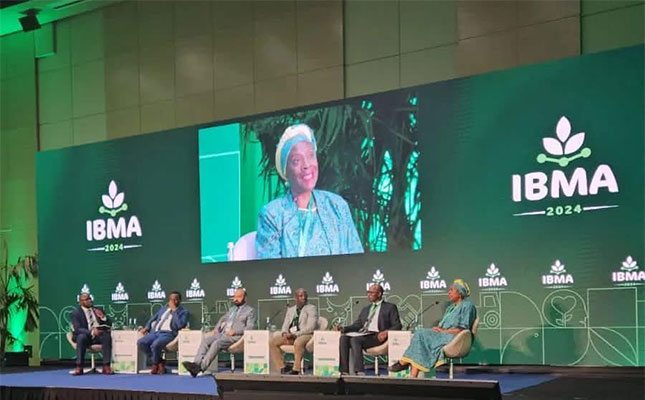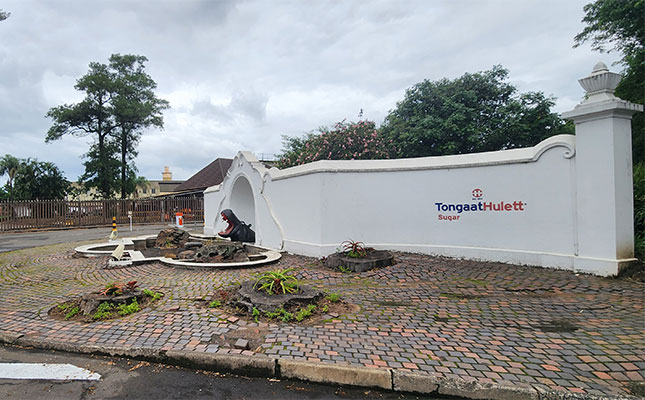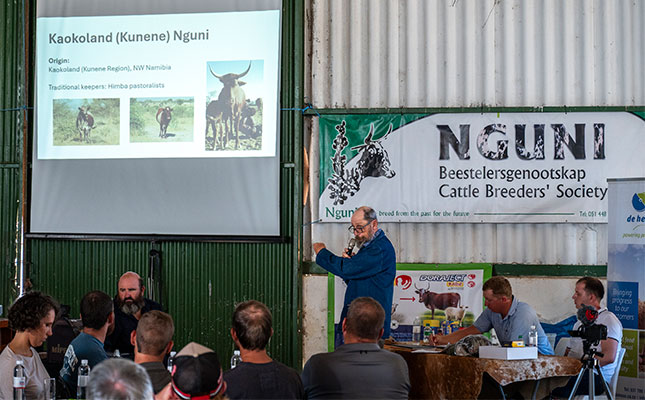Invest in women for faster economic growth
Given enough opportunity, women entrepreneurs can increase economic growth in Africa, according to Estherine Lisinge-Fotabong of the New Partnership for Africa’s Development Agency. She was speaking at the recent second conference for Women in Agribusiness in Durban.
Cloudy on climate change
Climate change alarmism is profoundly influencing policymakers. Yet some experts question the received wisdom on the issue, and worry that current policies can cause harm. Environmental specialist, Dr John Ledger, addressed the issue at the De Beers Diamond Route Conference.
Hunters need leadership and vision
Gerhard Damm, the editor of African Indaba, Conservation Force’s African newsletter, reviews some of the points raised in a recent online debate concerning hunting as a conservation tool.
Madam Customer is always right
To make it in the market these days, you have to know exactly who your customer is and satisfy her specific demands. A ‘shotgun’ approach to marketing will get you nowhere. This was the message of Dr Johan van Deventer, managing director of Freshmark, speaking at the Undercover Farming Conference held at Simondium in the Western Cape recently.
Resolute Namibian farmers cope with drought, disease
Namibia’s commercial farmers have endured hardship over the past year, with their resilience tested by a harsh extended drought and ongoing foot-and-mouth disease. Derek Wright, exiting president of the Namibian Agricultural Union (NAU), paid them tribute at the official opening of the 2015 NAU congress in Windhoek.
Renewable energy in Africa
The International Renewable Energy Agency recently released its Africa 2030: Roadmap for a Renewable Energy Future report. The report details the fact that Africa has significant potential to implement renewable energy – and can benefit greatly from the technology.
Threats to commercial farms
The Transvaal Agricultural Union of South Africa (TAU SA) requested Frans Cronje from the South African Institute of Race Relations (IRR) to draw up a policy brief on how to safeguard the future of commercial farming in South Africa.
What’s in a handful of soil?
Soil plays a critical role in the survival of people, plants and animals, yet is vastly underappreciated by the world at large. Victor Roberts, specialist soil scientist at the KwaZulu-Natal Department of Agriculture and Rural Development, explains why this situation must change.
Risk insurance vital for agricultural sector
Ryno du Toit, business development executive at Risk Benefit Solutions (RBS), an independent insurance and risk specialist, stresses the importance of mitigating risk in the agricultural sector.
Do what is right and good
Agriculture should remain progressive and proactive if it is to ride out the storm, Kwanalu’s outgoing president, Mike Black, said at the union’s recent congress in Pietermaritzburg.
SAPS Rural Safety Strategy review underway
The South African Police Service (SAPS) is reviewing its 2011 Rural Safety Strategy in a series of stakeholder workshops held around the country. Brigadier Judith le Roux, section head of proactive policing and crime reduction, explained why a review was necessary at the recent 2015 Agri North West congress held in Lichtenburg, North West.
Fast-tracking agri growth
Unlocking SA’s full agricultural production and processing potential is one of the ‘Big Five’ options to accelerate growth and job creation, according to a new McKinsey Global Institute (MGI) report.
SA farmers are ‘agropreneurs’
Local farmers seek to create sustainable business ventures out of agro-commodities, goods and services with other role players in the value chain. They are not mere landowners, according to Christo van der Rheede, deputy executive director at Agri SA.
Breaking down the barriers of silence
Free State Agriculture (FSA) is committed to ongoing engagement with government in order to build trust and remove racial stereotyping, according to its president, Dan Kriek. Addressing the recent 2015 FSA congress in Bloemfontein, he said commercial farmers believed in democratic values and supported change, but that policies such as land reform had to be orderly and efficient.
Conserving the last lions
The king of the beasts may not survive the 21st century. Conflict with livestock owners in Africa, a growing demand in the Far East for large felid bones, shrinking habitat, poaching and unlawful hunting are all combining to narrow the odds for Panthera leo, one of the most revered animals on the planet, writes Dr Gerhard Verdoorn, South African hunter and conservationist.
Enough is enough! – TAU SA
Louis Meintjies, president of TAU SA, draws a line in the sand on how far commercial farmers
can be pushed, and calls on other farmers to join him in order to defeat this ‘psychological war’.
A collective stance is needed
Margareet Visser of the Labour and Enterprise Research Group, UCT, and Stuart Ferrer, director of the Agricultural Policy Research Unit, UKZN, discuss producer-level collective bargaining.
Good science to fuel the future
Dr Charlie Reinhardt, a botanist from the University of Pretoria, says the challenge of global food security can only be addressed with sound scientific research and development.
Farming competitively – it can be done!
Despite facing serious challenges, South African agriculture can nonetheless increase its competitiveness, both locally and internationally. Prof Gerald Ortmann, head of Agricultural Economics at the University of KwaZulu-Natal, explores some of the options.
It’s not just about the money
In the struggle to eradicate poverty and hunger, the most important factor is people, not money. Unless a country is willing to better itself, no donor institution will succeed in transforming it, says Kanayo F Nwanze, president of the UN’s International Fund for Agricultural Development.
- ADVERTISEMENT -
- ADVERTISEMENT -
MUST READS
- ADVERTISEMENT -












